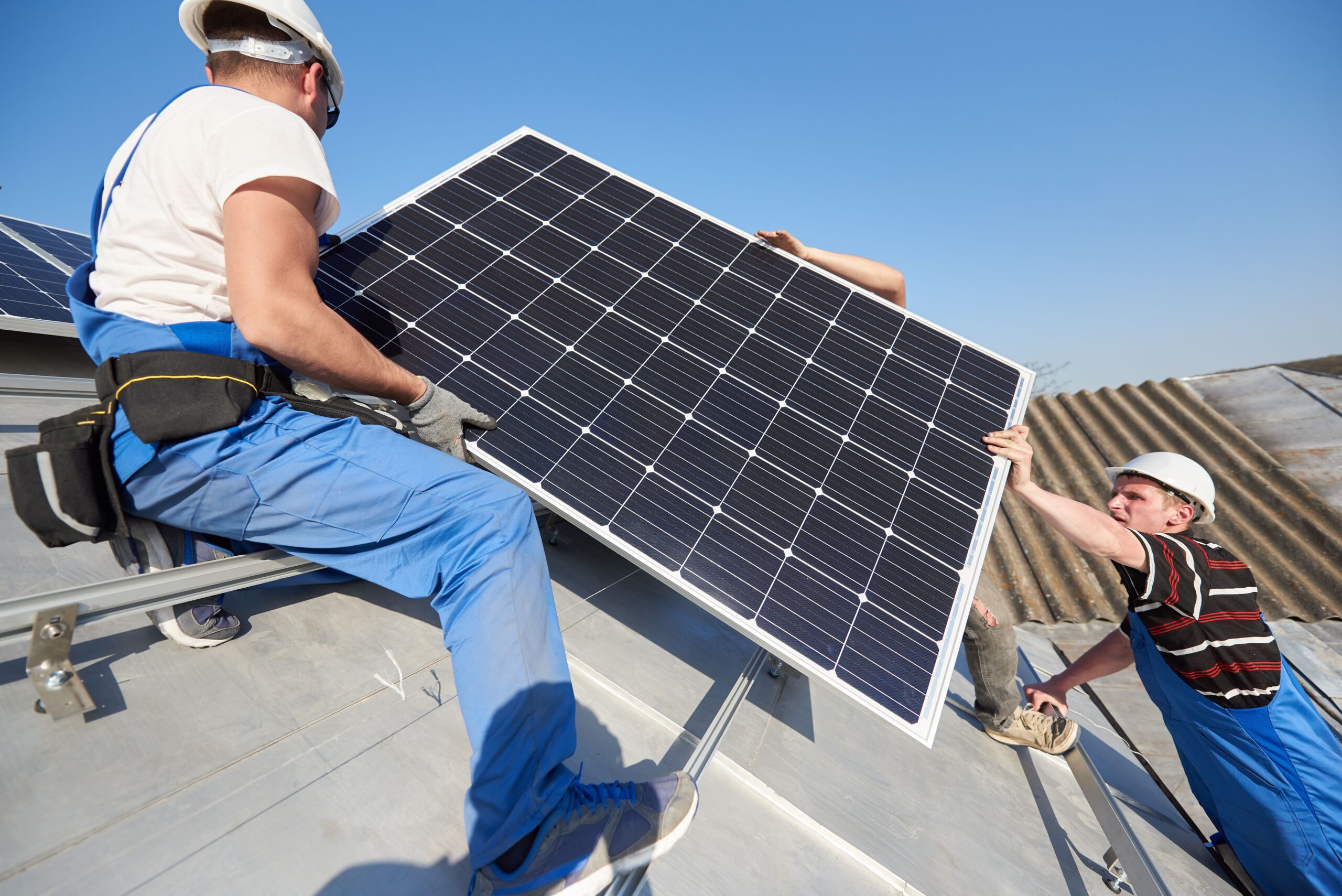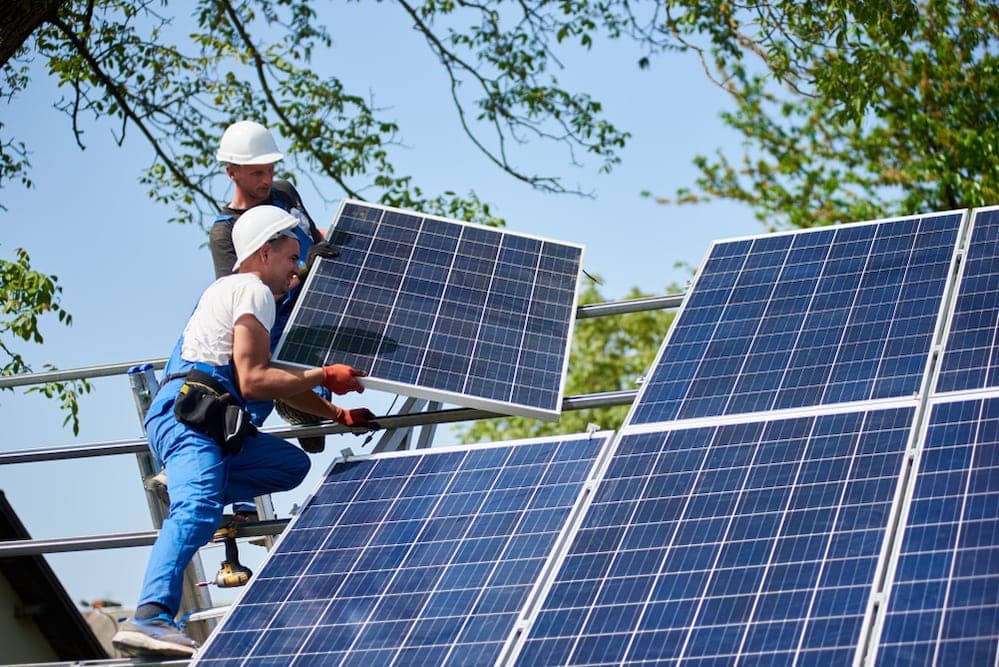Are you considering investing in a stand alone solar system for your home? Doing so can save you a significant amount of money in the long run. Stand alone solar systems offer a variety of money-saving benefits, from reduced energy bills to the use of renewable energy sources.
Reduced Electricity Bills
One of the most significant benefits of a stand-alone solar system is reduced electricity bills. Unlike traditional electricity systems, stand-alone solar systems generate energy from the sun’s rays and store it in batteries, eliminating the need for a connection to the power grid.
This means that you can say goodbye to monthly electricity bills from the power company and instead enjoy a sustainable and cost-effective energy source. In fact, you can save up to 90% on your electricity bills, depending on your energy consumption and the size of the system you install.
A stand-alone solar system is a smart investment in the long run. Although the initial costs may be high, the money saved on electricity bills will pay off the investment in the system over time. Not only will you save money on energy, but you’ll also have a reliable source of energy that you can count on, regardless of any power outages or fluctuations in the energy grid.
Plus, with the availability of government rebates and incentives, you can get additional savings when you install a stand-alone solar system. This means you can enjoy all the benefits of renewable energy without breaking the bank.
Energy Independence
One of the most significant benefits of a stand-alone solar system is energy independence. With traditional power sources, we depend on energy providers, such as utility companies, to provide electricity to our homes. But with a stand-alone system, you’re able to produce your own electricity, and thus be free from the grid.
This is particularly advantageous in remote locations where the cost of connecting to the grid may be prohibitive. Instead, you can rely on your own power source to meet your energy needs, providing greater security and peace of mind.
Moreover, the grid can be unreliable, subject to blackouts, power outages, or natural disasters that can disrupt the supply of electricity to your home. A stand-alone solar system allows you to maintain power even in the event of an emergency or power outage, ensuring you have access to electricity when you need it most.
Energy independence also means you’re not subject to the fluctuating costs of traditional energy sources, such as oil or natural gas. Solar energy, on the other hand, is a renewable energy source, so once you’ve installed your system, you can enjoy free and unlimited electricity for years to come.
Minimal Maintenance Costs
One of the biggest advantages of having a stand-alone system is that it requires minimal maintenance. Unlike traditional grid-tied systems that may need frequent upkeep, stand-alone systems are designed to be low-maintenance and self-sufficient.
In most cases, the solar panels and batteries used in a stand-alone system are built to last for years, often with warranties ranging from 10 to 25 years. This means you won’t have to worry about frequent replacements or repairs.
Additionally, the wiring and connections in stand-alone systems are designed to be simple and easy to use. This makes it easy to check the system’s performance periodically to ensure everything is working as it should.
Because stand-alone solar systems require minimal maintenance, the associated costs are also lower than with traditional systems. There’s no need to pay for professional maintenance services or repairs, which can add up over time.
In fact, with proper care and maintenance, a stand-alone solar system can continue to provide reliable and cost-effective power for years to come. It’s a smart investment that pays off in terms of energy savings, reduced maintenance costs, and increased peace of mind.
Environmental Sustainability
One of the most significant benefits of a solar system is its positive impact on the environment. Traditional electricity sources rely on fossil fuels that release harmful pollutants and greenhouse gases into the atmosphere. The use of a solar system helps to reduce the carbon footprint and preserve the environment.
The sun is a clean and renewable energy source that does not emit harmful pollutants. When you use solar power, you reduce the dependence on non-renewable sources of energy. This shift towards solar energy promotes environmental sustainability by helping to reduce pollution, protect wildlife habitats, and reduce the depletion of natural resources.
Furthermore, it can be designed to reduce energy waste. These systems have a battery backup that stores energy for later use. You can store excess solar energy during peak hours and use it during low production hours. This not only saves you money but also reduces energy wastage.
Stand Alone Power System Is Portable And Flexible Design
One of the many benefits of a stand alone power system is its portable and flexible design. Unlike traditional grid-connected systems, it can be easily transported and relocated to different locations as needed. This is particularly useful for those who may move or have remote locations that require power.
In addition to being portable, stand alone systems are also flexible in their design. They can be customized to meet the specific power needs of the individual or property, making them ideal for a wide range of applications. From powering a single residence to providing electricity for an entire off-grid community, they are versatile and adaptable.
Another advantage of the flexibility of a stand alone system is that it can be expanded over time as needed. For example, if a property owner initially installs a system to meet their basic electricity needs, they can add more solar panels and batteries as their energy demands increase.
Overall, the portability and flexibility of a solar system make it an excellent choice for those seeking independence from the grid and the ability to customize their power solutions. By choosing a stand alone system, you are taking control of your energy future and ensuring that you have the power you need, when and where you need it.
No Need For Grid Connection
One of the most significant benefits of a solar system is that it does not require a grid connection. This means that you can be completely independent of the main electricity grid, which has several advantages. Firstly, you don’t have to rely on power companies to supply your electricity, and you can be free of power outages that can happen when there is a grid failure.
Furthermore, it can be installed in remote areas where a grid connection may not be available or is not feasible due to the cost. In such areas, it can provide electricity to homes, farms, and businesses, allowing them to function without the need for a grid connection.
Also, it does not require the use of fossil fuels, which makes it an environmentally friendly option. You can reduce your carbon footprint significantly by switching to a solar system, which can also help you save money on your energy bills. Lastly, the absence of a grid connection means that you don’t have to pay any connection fees or be subject to any utility charges.
Reliability
One of the most important benefits of a solar system is its reliability. Unlike traditional power sources that rely on a centralized grid system, it operates independently and can be relied on to consistently provide power. This is especially important in areas prone to power outages or where grid connection is unreliable. Additionally, solar panels have a long lifespan and require very little maintenance. This means that once the system is installed, it can be counted on to provide consistent power for years to come with minimal upkeep.
The reliability of a solar system also means that businesses and homeowners can enjoy peace of mind knowing that they will not be left without power during emergencies or unexpected situations. In fact, many off-grid systems include battery storage that can provide power during power outages or at night when the sun isn’t shining.
Ultimately, the reliability of a solar system makes it a smart and practical investment for anyone seeking a reliable and consistent source of power. Whether for a remote cabin or a busy urban household, it provides reliable energy independence that is not subject to the whims of the utility companies or the grid.
Increased Property Value
Installing a stand-alone solar system can greatly increase the value of your property. In fact, studies have shown that homes equipped with solar panels can sell for up to 4% more than homes without them. This is because potential buyers see the solar panels as an added feature that can save them money on their energy bills in the long run.
Moreover, homes with a stand-alone solar system are viewed as more attractive to environmentally-conscious buyers who are looking to reduce their carbon footprint and save on their energy bills. With the growing interest in sustainability and renewable energy sources, investing in a stand-alone solar system can attract a wider pool of potential buyers.
Not only does a stand-alone solar system increase your property’s value, it also reduces your home’s operating costs, making it more attractive to buyers who are concerned with energy efficiency and cost savings.
| Other Good Articles to Read |
| Blogs Rain |
| Cme Blog Spot |
| Garcias Blogs |
| Guiade Blogs |
| Blogs-Hunt |
| Impact-Blog |
| Smarty Blogs |
| Ed Blog |
| Mo Blogs |
| Blogs Em |
| Blogs T |



